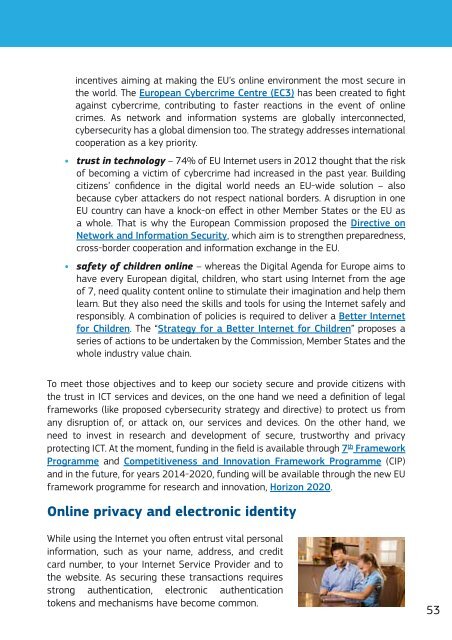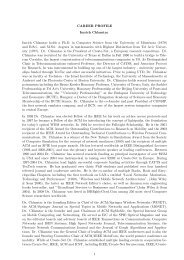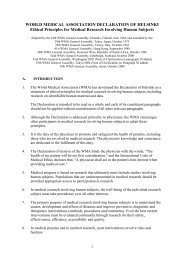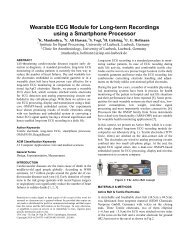ICT for Societal Challenges - European Commission - Europa
ICT for Societal Challenges - European Commission - Europa
ICT for Societal Challenges - European Commission - Europa
Create successful ePaper yourself
Turn your PDF publications into a flip-book with our unique Google optimized e-Paper software.
incentives aiming at making the EU’s online environment the most secure in<br />
the world. The <strong>European</strong> Cybercrime Centre (EC3) has been created to fight<br />
against cybercrime, contributing to faster reactions in the event of online<br />
crimes. As network and in<strong>for</strong>mation systems are globally interconnected,<br />
cybersecurity has a global dimension too. The strategy addresses international<br />
cooperation as a key priority.<br />
• trust in technology – 74% of EU Internet users in 2012 thought that the risk<br />
of becoming a victim of cybercrime had increased in the past year. Building<br />
citizens’ confidence in the digital world needs an EU-wide solution – also<br />
because cyber attackers do not respect national borders. A disruption in one<br />
EU country can have a knock-on effect in other Member States or the EU as<br />
a whole. That is why the <strong>European</strong> <strong>Commission</strong> proposed the Directive on<br />
Network and In<strong>for</strong>mation Security, which aim is to strengthen preparedness,<br />
cross-border cooperation and in<strong>for</strong>mation exchange in the EU.<br />
• safety of children online – whereas the Digital Agenda <strong>for</strong> Europe aims to<br />
have every <strong>European</strong> digital, children, who start using Internet from the age<br />
of 7, need quality content online to stimulate their imagination and help them<br />
learn. But they also need the skills and tools <strong>for</strong> using the Internet safely and<br />
responsibly. A combination of policies is required to deliver a Better Internet<br />
<strong>for</strong> Children. The “Strategy <strong>for</strong> a Better Internet <strong>for</strong> Children” proposes a<br />
series of actions to be undertaken by the <strong>Commission</strong>, Member States and the<br />
whole industry value chain.<br />
To meet those objectives and to keep our society secure and provide citizens with<br />
the trust in <strong>ICT</strong> services and devices, on the one hand we need a definition of legal<br />
frameworks (like proposed cybersecurity strategy and directive) to protect us from<br />
any disruption of, or attack on, our services and devices. On the other hand, we<br />
need to invest in research and development of secure, trustworthy and privacy<br />
protecting <strong>ICT</strong>. At the moment, funding in the field is available through 7 th Framework<br />
Programme and Competitiveness and Innovation Framework Programme (CIP)<br />
and in the future, <strong>for</strong> years 2014-2020, funding will be available through the new EU<br />
framework programme <strong>for</strong> research and innovation, Horizon 2020.<br />
Online privacy and electronic identity<br />
While using the Internet you often entrust vital personal<br />
in<strong>for</strong>mation, such as your name, address, and credit<br />
card number, to your Internet Service Provider and to<br />
the website. As securing these transactions requires<br />
strong authentication, electronic authentication<br />
tokens and mechanisms have become common.<br />
53






